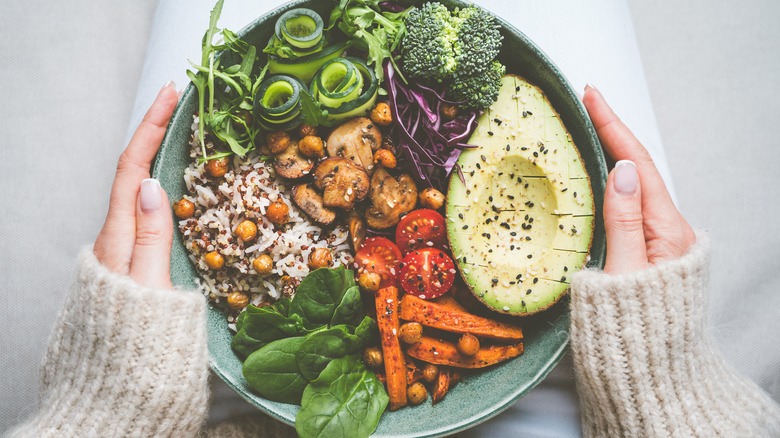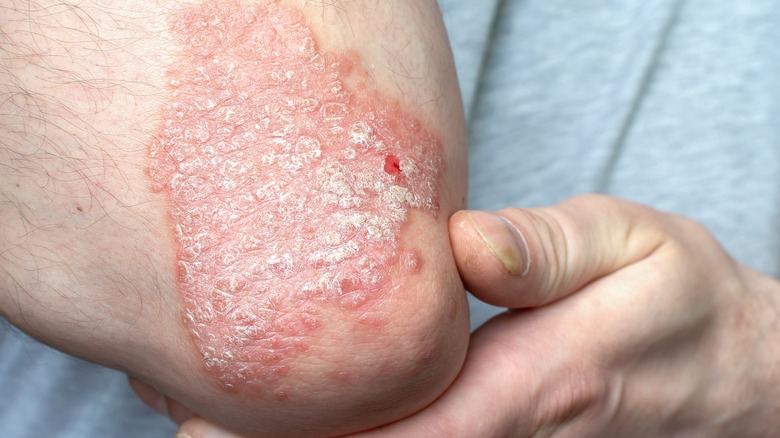Can Following A Plant-Based Diet Help Your Psoriasis?
If you have psoriasis or know someone who does, then you know it can present itself on the skin and cause discomfort. A diet change may be a secret weapon for some people who deal with psoriasis.
According to the National Psoriasis Foundation, psoriasis affects more than 7.5 million adults in the U.S though it is non-contagious. It is a condition related to inflammation that can appear as scales or raised plaques on the skin. These plaques can be painful and itchy and appear anywhere on the body. Therefore even if they aren't causing you discomfort by being visible, you still have to manage their bothersome effects. These symptoms usually flare up after being triggered by many things like weather changes, stress, allergies, sunburns, or other skin injuries.
The immune system is responsible for the inflammation and resulting symptoms on the skin that accompanies psoriasis. With this condition, the immune system is triggered and creates more skin cells than necessary, but they pile up instead of shedding like normal skin cells. While there is no cure for psoriasis, there are ways to attempt to treat it. These include various light exposure therapies, topical ointments, and prescription medications that work internally. These options require ongoing treatment and may or may not work effectively for everyone. However, changing your diet could increase those chances.
Your diet can reduce symptoms
Since psoriasis is an inflammation that occurs on the skin, methods that decrease inflammation, in theory, seem like a logical way to reduce its symptoms. Some other treatments follow this thought process, while others slow skin production or block the immune system to try and reduce reactions (via Cleveland Clinic). Eating fatty and highly processed foods and alcohol can trigger inflammation and possibly make psoriasis worse, according to Johns Hopkins Medicine. These foods include red meat, dairy, white bread, rice, pasta, fried foods, margarine, and foods with added sugars — such as candy, soda, and baked goods.
By removing these foods from your diet and replacing them with natural plant alternatives, you can reduce your overall inflammation, consequently reducing inflammation from psoriasis. Instead of foods that can spike blood sugar, be challenging to digest, raise "bad cholesterol," or trigger the immune system, eat foods that do the opposite. Try fruits, vegetables, nuts, olive oil, whole grains, and legumes.
According to a 2017 Journal of Geriatric Cardiology study, eating a plant-based diet can also be effective for weight loss. This is important because there is a link between body weight and the severity of symptoms for psoriasis patients, reports the National Psoriasis Foundation. Body fat plays a pro-inflammatory role, so dropping excess body weight can also help reduce symptoms of psoriasis. Eating a plant-based diet may not replace your psoriasis treatments, but it can help reduce your symptoms and improve other aspects of your health.


